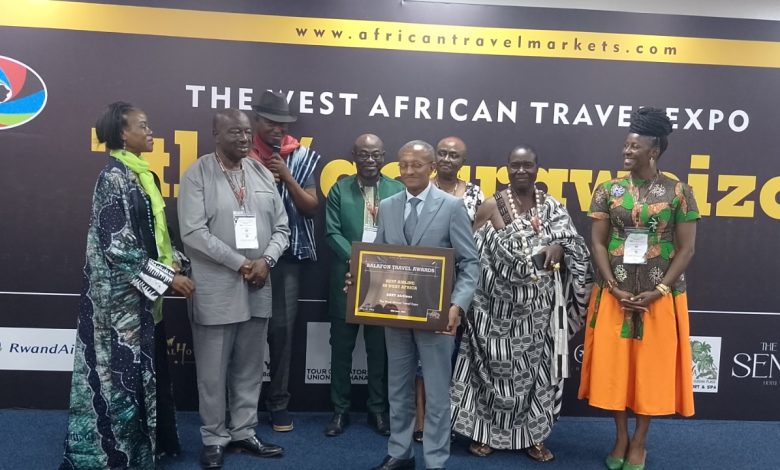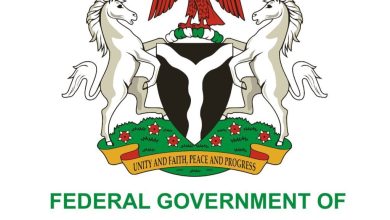Africa’s Aviation Industry: Challenges, Prospects, and the Path Forward…Esayas WoldeMaria

Africa – a continent bursting with untapped potential. Home to 60% of the world’s uncultivated arable land, holds the key to future global food security. This, coupled with its immense natural resources, makes it a highly sought-after partner on the world stage.
As veteran aviation expert and Managing Director, ASKY Airlines, Mr. Esayas WoldeMaria eloquently puts it, “Africa is like a beautiful young lady that everybody wants to marry.”
Yet, this attractive continent faces a significant challenge in connecting its vast potential through a robust aviation industry. While boasting 18% of the global population, Africa accounts for a mere 3% of air traffic.
This disparity is particularly glaring in West Africa, home to 400 million people, a blooming $800 billion GDP, but a severely under-served aviation market.
Speaking on the topic; Aviation: Challenges and Prospect in West Africa at the 7th Accraweizo conference in Accra, Ghana, Mr. WoldeMaria highlights this stark reality, “Imagine, 400 million people spread across 5.2 million square kilometers with limited access to dependable air connectivity!”
The path to a thriving African aviation sector is paved with both promise and obstacles. Mr. WoldeMaria identifies three key challenges:
The Price of Progress: The cost of air travel in Africa is exorbitantly high. Strangulating taxes, sometimes exceeding one-third of the ticket price, cripple affordability. Governments, rather than investing in crucial infrastructure, view airlines as cash cows, imposing excessive levies with little regard for long-term growth.
In his words, “In every country, when you are crossing, you pay 2,000 US dollars per crossing no wonder why buying a ticket is so expensive”.
“Countries have all kinds of grammars to create the tax. They say infrastructure development tax, when the subject is finished, they will say solidarity tax. They will create all kinds of grammar to collect more money”.
“And the fact of the matter is that all the money collected does not go to the infrastructure development. It is siphoned, diverted somewhere else, so because of that, aviation infrastructure in Africa is not well developed”.
Fragmentation & Protectionism: Despite regional agreements like Economic Community of West African States, ECOWAS and ambitious initiatives like Single Africa Air Transport Market, SAATM and African Continental Free Trade Agreement, AFCFTA, implementation lags behind rhetoric. Governments cling to protectionist policies, restricting air traffic rights and hindering the emergence of a unified, efficient African aviation market.
“In the African Union, the solemn declaration of the African countries starts. They invoke the SAATM slogan, AFCFTA, beautiful slogans and they sign, when they come back home, everybody is protective of his airspace”.
An Industry Divided: The African aviation industry itself is hampered by fragmentation. Airlines, locked in fierce competition, miss valuable opportunities for collaboration and synergy. “Co-opetition”, as Mr. WoldeMaria calls it, combining strategic competition with crucial cooperation, is key to achieving cost-effectiveness and expanding reach.
“The airlines are so fragmented, they don’t work together in collaboration, if they work together, it creates a synergy”.
Building a Brighter Future: Investing in Expertise & Infrastructure
A critical piece missing from the African aviation puzzle is the lack of skilled personnel. Mr. WoldeMaria emphasizes the importance of investing in training and maintenance facilities. “Aircraft require expertise, not just capital,” he stresses, “We need to nurture local talent and empower them to maintain and grow our airlines.”
Despite the challenges, Mr. WoldeMaria remains optimistic.
He sees immense potential in West Africa’s interconnected communities and shared heritage. By prioritizing investment in training, streamlining regulations, and fostering collaboration between airlines, Africa can unlock its aviation potential.
“West Africa is very beautiful. People have relatives in Togo, in Ghana, in cote d’ivoire they are highly interconnected. The only thing that they need to do is aviation training, cost management, the airlines to cooperate, and the government to understand the necessity of dependable essential connectivity and to treat aviation as an important strategic asset and invest in it, invest in infrastructures”.
Mr. WoldeMaria’s vision for African aviation is clear: “Governments must recognize aviation not as a luxury, but as a strategic asset. By fostering a conducive environment for growth and investing in essential infrastructure, we can connect this vibrant continent and unleash its true economic power.”
Discover more from Radio Nigeria Lagos
Subscribe to get the latest posts sent to your email.




